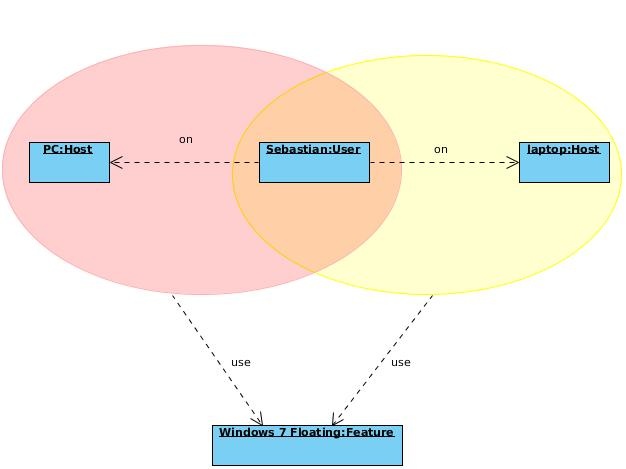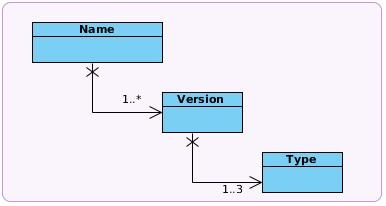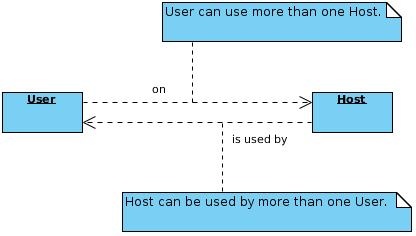| The information on this page refers to License Statistics v6.11, which redesigned license server administration and resulted in removing functionality related to "realtime" license servers and "gathering type." If you are running an older version of License Statistics, see documentation for versions prior to v6.11. |
This glossary lists terms that are specific to License Statistics and feature usage monitoring.
Actions | |
License request | A request made by a user to obtain a particular software license. |
Usage | Refers to the use of a license, which means that the license is taken from a pool of available licenses. A user can use two licenses of the same feature, as shown below. Users Using License |
Borrow | A type of license usage that allows a user to use a floating license without being connected to the license server. |
Denial | The denial of a request for a license. |
License Reservation | License is assigned to a specific user and cannot be utilized by another user without an administrator reassigning the license to another user. For reservations, a "user" is defined by a set of rules with various parameters, which may include the following, depending on the license server:
|
Realtime Denial | The denial of a license request. |
Denied Requests Log | One or more log files that contain data about denials. |
Feature Versioning | When Feature Versioning is set, features shown in lists include a separate entry for each version of that feature, and are named feature_version throughout License Statistics. |
Monitoring | Gathering information from a particular license server about feature usage details. |
Importing | Gathering information from a license server log file about feature usage details. |
Last Update Time | The last time at which License Statistics received an update from a license server. |
Entities | |
Software | An application. |
Log file | One or more ASCII text files written by a license server. |
License | License for particular software. |
Feature | The definition of a license. The parts of a feature are:
As shown in the diagram below, a feature is defined by its name, version and type. There can be multiple versions with the same name, but each version can have only three license types: nodelocked, floating, or token. Although the features may share the same name, each feature with a different version and/or type is an individual, unique feature. Feature
|
License manager | A solution that provides the ability to manage licenses. |
User | An application or person that requests a license. Technically unique User in all contexts is a unique username. |
Host | The computer on which a user is accessing a license. A user can use a feature on more than one host, and a host can be used by more than one user, as shown below. User on Hosts Technically uniqueness of the Host depends on the context:
|
License server | Software hosting licenses for a single software vendor. A license server can be an individual license server or a license server group (two or more license servers that are treated as one). |
Vendor | The manufacturer of a software application using a particular license manager. |
Data source | The source of data being used for statistics gathering (Remote, Imported, or End User). |
| Linux system | Refers to Linux x64 platform. |
| Windows system | Refers to Win64 platform. |


